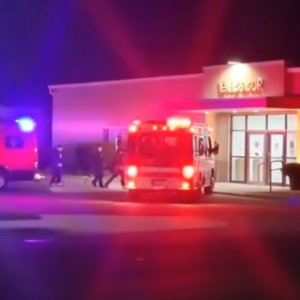Sweeping reforms to the Supplemental Nutrition Assistance Program (SNAP) are set to take effect this November, marking the most significant transformation of the nation’s food assistance system in decades. Enacted through the new One Big Beautiful Bill Act, the changes will reduce federal SNAP funding while tightening eligibility and participation requirements. According to the Congressional Budget Office (CBO), the policy overhaul could affect roughly 2.4 million Americans each month once fully implemented. Advocates for the law argue that it encourages employment and reduces dependency on federal assistance, while critics fear it will deepen hardship for low-income households already struggling to meet basic needs.
At the core of the reforms are expanded work requirements for adults receiving SNAP benefits. Under the new rules, recipients aged 18 to 64 must work at least 80 hours per month—or participate in approved job training programs—to receive benefits beyond a three-month limit within any three-year period. This policy reflects a long-debated approach that links public aid to labor participation, echoing past welfare-to-work initiatives. While some exemptions remain for individuals with disabilities and parents caring for young children, the law eliminates several previous exemptions, including those that protected veterans, homeless individuals, and young adults transitioning from foster care. These removals have sparked significant criticism from anti-poverty advocates, who warn that the new standards could disproportionately harm vulnerable populations already facing barriers to employment.
The law does, however, allow states limited flexibility. Governors may request temporary waivers from the federal government if local unemployment rates rise sharply or if economic conditions make it difficult for residents to find work. Historically, these waivers have helped cushion the impact of federal mandates in regions with weak labor markets, particularly during economic downturns. Still, analysts note that the process for obtaining waivers has been made more stringent under the new legislation, potentially leaving fewer states eligible for relief. The administration has justified the move as a way to ensure “accountability and consistency” across states, but opponents see it as a step toward centralizing control and reducing local discretion in addressing poverty.
Beyond employment rules, the One Big Beautiful Bill Act also introduces new restrictions on who can access food assistance based on immigration status. Under the updated guidelines, only U.S. citizens and lawful permanent residents will qualify for SNAP benefits. This change reverses earlier provisions that allowed certain categories of non-citizens—such as refugees, asylum seekers, and individuals granted humanitarian protections—to receive assistance. The CBO projects that approximately 90,000 people per month will lose eligibility as a result of this policy shift. Immigrant rights organizations have condemned the move as punitive, arguing that it punishes families who are already contributing to the U.S. economy, while supporters insist it ensures that federal benefits are reserved for legal residents and citizens.
In addition, the law will freeze updates to the Thrifty Food Plan—the federal model used to calculate SNAP benefit levels—until 2027. The plan’s last revision in 2021 increased benefit amounts to reflect higher food costs and nutritional needs, marking the first such adjustment in decades. Freezing the plan means that benefit amounts will no longer automatically rise with inflation or changing food prices, effectively curbing federal spending on SNAP. Proponents argue that this measure promotes fiscal discipline and curbs unsustainable growth in entitlement programs. Critics, however, warn that it could reduce the purchasing power of SNAP recipients as grocery prices continue to climb, forcing many families to make difficult choices between food, housing, and healthcare.
As the November implementation deadline approaches, state agencies across the country are preparing to update their systems, notify beneficiaries, and train caseworkers on the new eligibility rules. Social service organizations are also bracing for an influx of clients seeking guidance or emergency food support once the changes take effect. The policy shift underscores a broader ideological divide over the role of government in addressing poverty—between those who view social assistance as a temporary safety net and those who see it as a moral obligation to protect society’s most vulnerable members. Whether these reforms achieve their intended goals of promoting self-sufficiency or instead exacerbate hunger and inequality will likely be the subject of intense political and social debate in the years to come.





